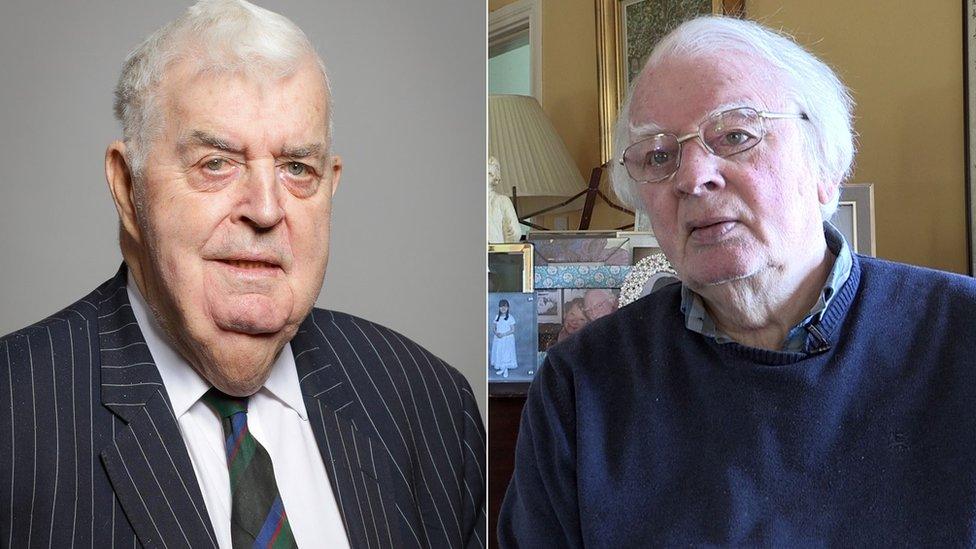NI civil rights leader Austin Currie dies
- Published
NI civil rights leader Austin Currie dies
Austin Currie, one of the key figures in the civil rights movement in Northern Ireland, has died aged 82.
Mr Currie also helped to found the nationalist Social Democratic and Labour Party (SDLP) party and was elected to parliament on both sides of the Irish border.
He was described by Tanaiste Leo Varadkar as "one of the outstanding politicians of his generation".
Mr Currie's five children described him as "wise, brave and strong".
They said he died peacefully in his sleep in Derrymullen, County Kildare.
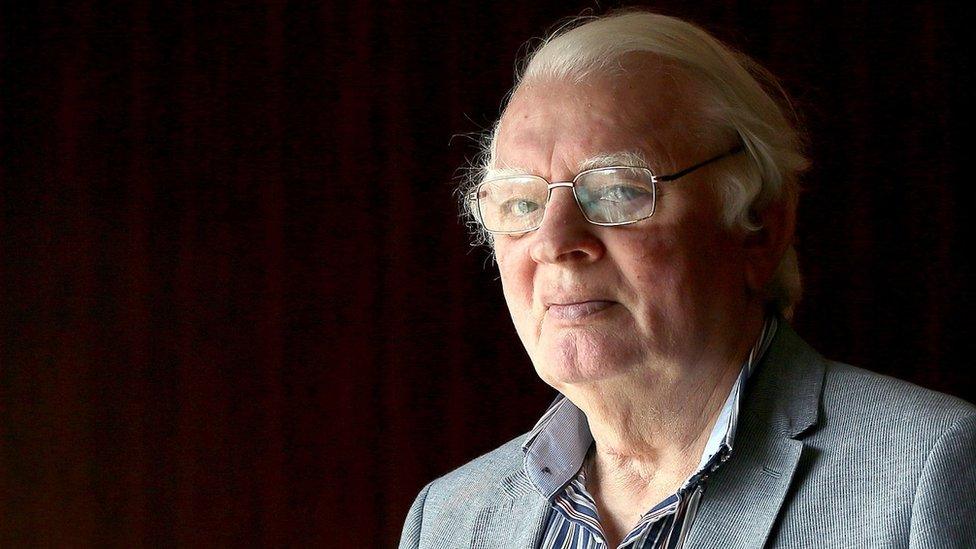
Mr Currie's five children described him as "our guiding star"
"We thank him for the values that he lived by and instilled in us," they said.
"He was our guiding star who put the principles of peace, social justice and equality first."
He was married to his wife, Annita, for 53 years.
Their family described them as a "formidable team whose love for each other and their family saw them through some of the worst times in Northern Ireland's recent history".
'Titan of civil rights'
Born in County Tyrone, Mr Currie was the eldest of 11 children.
He served on the Northern Ireland Parliament for East Tyrone from 1964 to 1972.
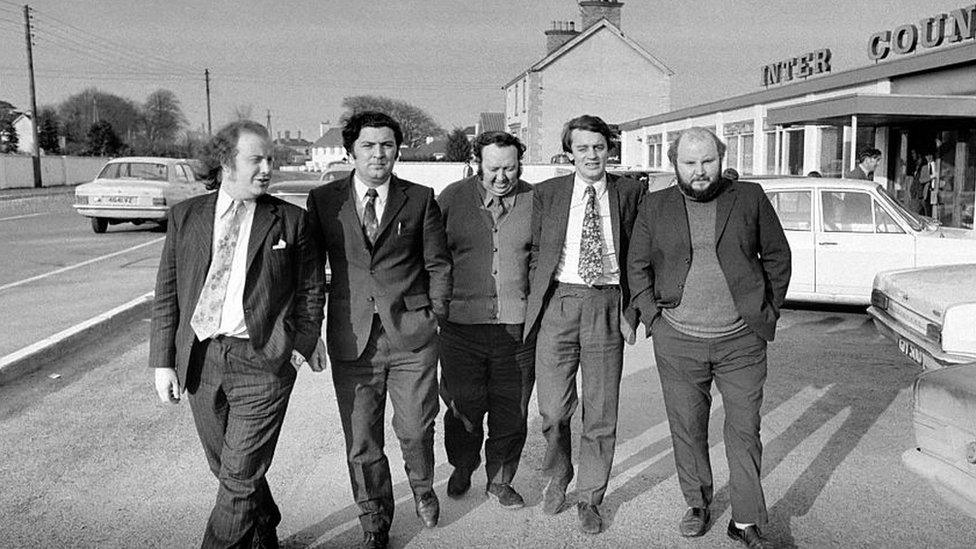
Austin Currie (second from right) was an early member of the SDLP along with (l-r) Ivan Cooper, John Hume, Paddy Devlin and Paddy O'Hanlon
He was just 24 when he won a by-election as a Nationalist Party candidate - one of nine MPs from the party in a parliament where the Ulster Unionist Party held 34 out of 52 seats.
His decision to squat at a council house in Caledon in June 1968 is widely seen as the beginning of the civil rights movement, external, which challenged inequality and discrimination against Catholics.
He went on to found the SDLP along with John Hume and Gerry Fitt in 1970.
In 1989, he won a seat for Fine Gael and served in the Irish parliament and as a government minister until he retired in 2002.

Austin Currie and John Hume, who died last year, were founding members of the SDLP
SDLP leader Colum Eastwood said Mr Currie was a "titan" of the civil rights movement and a forefather of the party.
"Each time we lose a political giant like Austin we lose a piece of our history," he said.
"While moments like this bring us great sadness, it also gives us the opportunity to celebrate the man and the huge contribution he made to politics in both the north and south of our island.
"It's because of brave men and women like Austin who saw the way their community was being treated and refused to be silenced, that we all enjoy the freedoms and privileges we have today."
Allow X content?
This article contains content provided by X. We ask for your permission before anything is loaded, as they may be using cookies and other technologies. You may want to read X’s cookie policy, external and privacy policy, external before accepting. To view this content choose ‘accept and continue’.

Democratic Unionist Party leader Sir Jeffrey Donaldson said he was very sad to hear about Mr Currie's death.
"Austin and I may not always have seen eye to eye, but he was someone I held in very high respect - a decent man," he said.
Taoiseach (Irish prime minister) Micheál Martin described Mr Currie as a "peacemaker".
Mr Martin tweeted, external: "Saddened to hear of the death of Austin Currie, one of the founding fathers of the civil rights movement in Northern Ireland.
"He did so much for people, as a peacemaker and in politics, serving in the Dail and as Minister of State with distinction."
Tánaiste (Irish deputy prime minister) Leo Varadkar, who currently holds Mr Currie's former seat of Dublin West along with his daughter Emer Currie, said he knew him as a "brave, courageous and principled man".
"He was blessed with extensive political insight and boundless humanity," he said.
"Above all, he cared most about bringing peace to this island by peaceful means, something he worked towards throughout his political career, and was vehemently opposed to political violence."
Irish Foreign Minister Simon Coveney described him as "a man of extraordinary generosity and conviction".
He tweeted, external: "He campaigned for social justice, equality and peace all his life, North and South. Sincere condolences to his family. RIP."
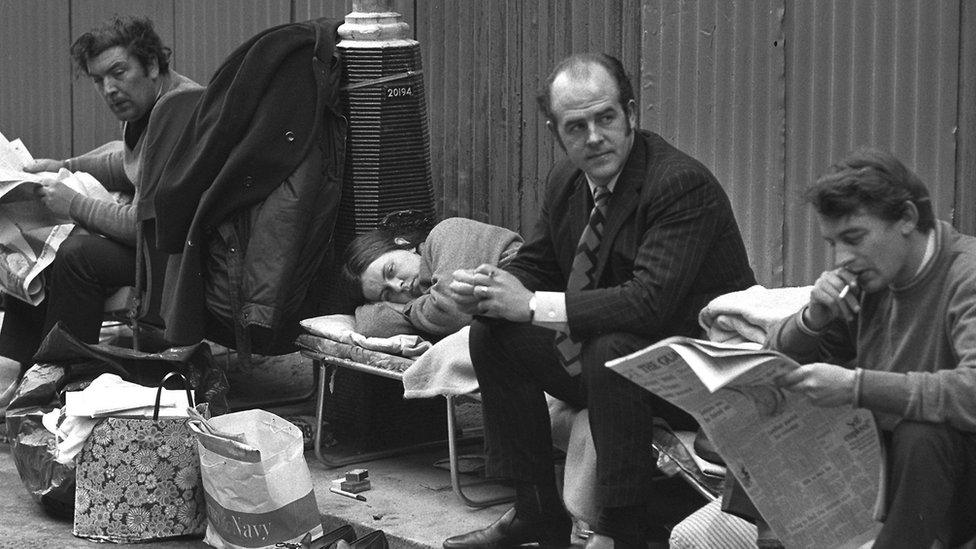
Austin Currie (right) on a two-day hunger strike outside Downing Street in 1971 to demand a public enquiry into the treatment of detainees in Northern Ireland
Dr Seán Farren, chair of the John and Pat Hume Foundation, said Mr Currie "was a true giant of civil rights and constitutional politics".
"He was a courageous leader who dedicated his political life to non-violent peaceful change. He was a pioneer in the movement for civil rights," he said.
"His decision to lead a sit-in at a house in Caledon to highlight discrimination in housing allocation by Dungannon Council was a key moment in the movement's campaign to achieve fairness and civil rights for all."
- Published10 November 2021
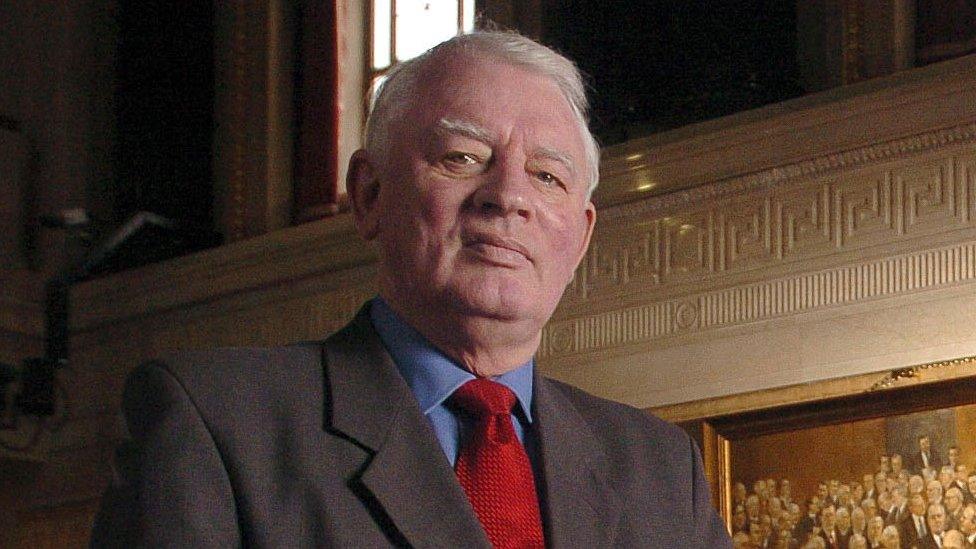
- Published24 June 2021
